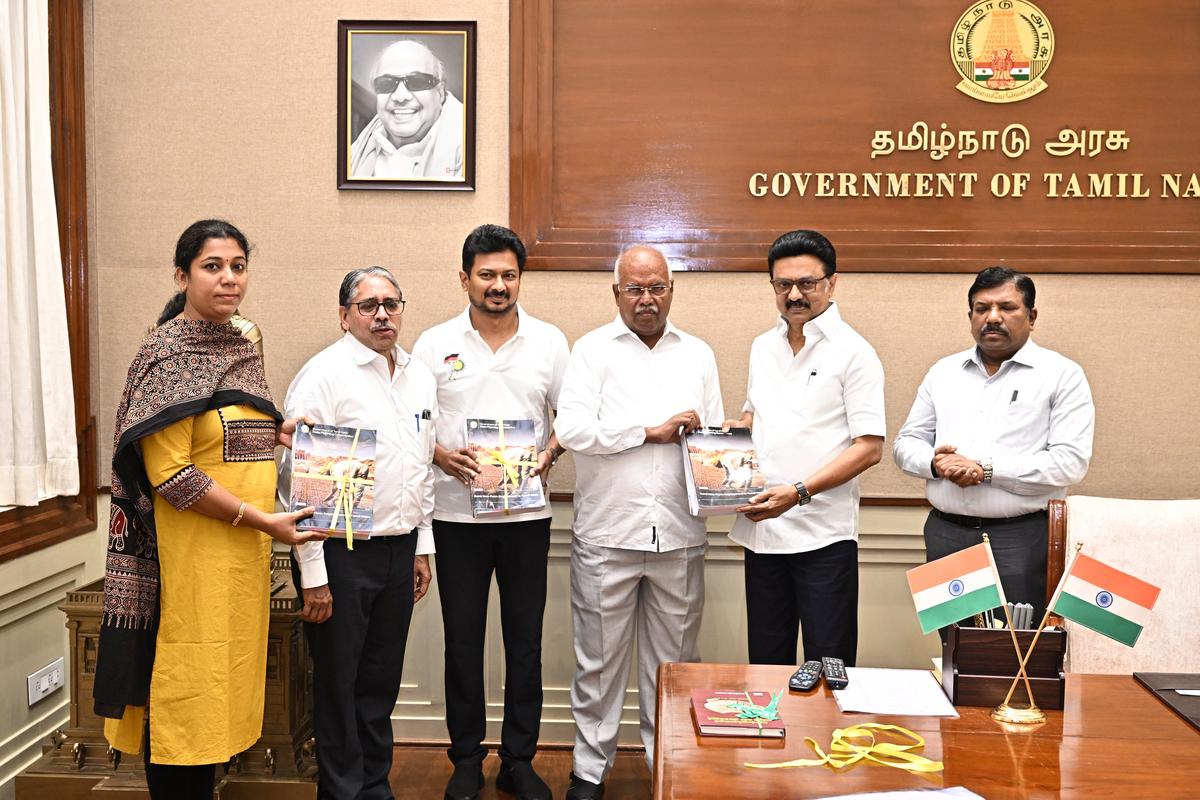Representational image. File
| Photo Credit: C. Venkatachalapathy
A study by Tamil Nadu’s State Planning Commission has revealed a structural shift in rural livelihoods marked by a 20% decline in dependence on agriculture for employment opportunities since 2012, with younger workers (aged 15–34) leading this transition, preferring non-farm jobs due to better wages and more stability.
A total of four reports by the State Planning Commission were submitted to Tamil Nadu Chief Minister M.K. Stalin at the Secretariat in Chennai on Monday (June 9, 2025). Deputy Chief Minister Udhayanidhi Stalin, who is also the State Planning Commission’s ex-officio Vice-Chairman, Executive Vice-Chairman J. Jeyaranjan, State Planning Commission submitted the reports to Mr. Stalin.

Tamil Nadu Deputy Chief Minister Udhayanidhi Stalin, who is also the State Planning Commission’s ex-officio Vice-Chairman, Executive Vice-Chairman J. Jeyaranjan, State Planning Commission submitted the four reports to Chief Minister M.K Stalin at Chennai on June 9, 2025
| Photo Credit:
Special Arrangement
The report of the study on rural non-farm employment in the State indicated that over 75% of male workers and 50% of female workers are now employed in non-agricultural activities.
“Construction has emerged as the dominant sector for male workers, particularly among the youth, while manufacturing remains the primary employer for women across all age groups,” an official release said quoting the report.
The study was undertaken in 12 villages of six districts with higher as well as lower rural non-farm economy (RNFE). It highlighted a significant shift away from agriculture, with an increasing number of workers engaging in non-farm sectors, such as construction and manufacturing.
Three other reports — ‘Tamil Nadu’s vision for sustainable development goals’, ‘Tamil Nadu’s automotive future’ and ‘Reimagining Tamil Nadu – Path to knowledge economy’ were also submitted to the Chief Minister.
‘Tamil Nadu’s vision for sustainable development goals’ highlighted the current status of the State and interventions by the State government through various welfare schemes.
The report on ‘Tamil Nadu’s automotive future’ recommended the establishment of electric vehicle clusters, enhancing logistics infrastructure with roll-on roll-off terminals and multimodal hubs, and expanding research and development through centres of excellence and skill parks.
The report on ‘Reimagining Tamil Nadu – Path to a knowledge economy’ focused on two key pillars: Global Capability Centers (GCCs) and the future of manufacturing. “It examines the current landscape and provides inputs on accelerating growth and redefining the manufacturing sector through innovation, technology, and sustainability. It also highlights the importance of strengthening the MSME ecosystem as a key driver of economic resilience, while underscoring the need for inclusive growth with attention to social equity as a guiding principle for economic transformation,” the release said.
Published – June 09, 2025 06:04 pm IST